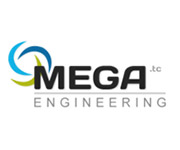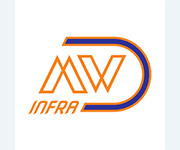Civil engineering instruments are tools that are used to perform various tasks in the field of civil engineering. These instruments are designed to make measurements, collect data, and perform calculations that are necessary for designing and constructing structures such as buildings, roads, bridges, and other infrastructure.
There are a wide variety of civil engineering instruments available, each designed for a specific purpose. Some of the most commonly used civil engineering instruments include levels, total stations, theodolites, GPS receivers, laser scanners, and surveying equipment.
Levels are used to determine the height and levelness of a surface. Total stations and theodolites are used to measure angles and distances, which are essential for surveying and construction layout. GPS receivers are used for precise location and mapping. Laser scanners are used to create highly detailed 3D models of buildings and other structures.
Other common civil engineering instruments include concrete testing equipment, soil testing equipment, geotechnical instruments, and environmental monitoring equipment.
Civil engineering instruments are essential for ensuring the safety and stability of structures and for accurately measuring and monitoring environmental conditions. By using these instruments, civil engineers can design and construct structures that are safe, reliable, and efficient.
We provide Civil engineering instruments of
Levelling Equipment
- Dumpy Level
- Tilting Level
- Auto Level
- Digital Level
Total Station
- DOS Total Station
- Windows Total Station
- Robotic Total Station
- Robotic Total Station
- Robotic Total Station
- Robotic Total Station
Drone
- Fixed wing drone
- Quadcopter drone
- Multicopter drone
- Multicopter drone
- Multicopter drone
DGPS (Differential Global Positioning System)
- GPS (Global Positioing System)
- GNSS (Global Navigation Satellite System)
- MGPS
Laser Scanner
- TLS (Terrestrial Laser Scanner)
- MLS (Mobile Laser Scanner)
- ALS (Aerial Laser Scanner)
There are many different instruments used in civil engineering, each with a specific purpose. Some of the most common civil engineering instruments include:
- Levels – used to determine the height and levelness of a surface.
- Total stations – used to measure angles and distances for surveying and construction layout.
- Theodolites – used to measure horizontal and vertical angles.
- GPS receivers – used for precise location and mapping.
- Laser scanners – used to create highly detailed 3D models of buildings and other structures.
- Surveying equipment – including tripods, prisms, rods, and tape measures, for measuring distances and angles.
- Concrete testing equipment – including compression machines, slump cones, and air meters, for testing the strength and properties of concrete.
- Soil testing equipment – including sieves, moisture meters, and penetrometers, for testing the properties of soil.
- Geotechnical instruments – including inclinometers, piezometers, and extensometers, for monitoring ground movement and stability.
- Environmental monitoring equipment – including air quality meters, water quality meters, and weather stations, for monitoring environmental conditions.
This list is not exhaustive, and there are many other instruments used in civil engineering depending on the specific project and requirements.
Our Valuable Clients

























